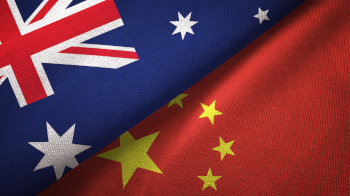Australia and China have a strong economic relationship. China is Australia’s largest source of overseas students, and the second largest and highest spending inbound tourism market. Whilst this economic relationship is mutually beneficial, it also creates opportunities for criminals.
It’s therefore important that the two governments work together to fight transnational crime where there are links between Australia and China, or where either’s citizens play key facilitator roles.
A recent report by the Australian Strategic Policy Institute (ASPI) examines the key considerations and challenges in successful law enforcement cooperation between Australia and China. In this article, we explore the findings relating to the area of economic crimes.
Australia and China law enforcement cooperation: an overview
Australian police have a very strong relationship with China’s police. A number of agreements have recently been signed targeting transnational crime impacting Australia and China, and significant results have been achieved through this international cooperation including the recent return of AU$215,000 that was forfeited in Australia as proceeds of crime, after it was unlawfully removed from China.
Despite these successes, there are also inherent risks for Australian authorities in working with China. China has a very different political and judicial system from that of Australia, whereby law enforcement agencies operate at the direction of the Chinese Communist Party (CCP). Australians have legitimate concerns about the rule of law and civil and human rights in China. These differences complicate the ability to engage in law enforcement cooperation.
Economic crimes and the view of Australia as a “safe haven”
The ASPI report highlights how many criminals alleged of committing economic crimes such as fraud and corruption have fled China, taking their assets with them.
As Australia does not have an extradition treaty with China, it is an attractive destination to these fugitives as there is less risk of them being returned to China.
China’s increasing anti-corruption focus
Targeting corruption amongst public officials is an extremely high priority of the Chinese Government, however anti-corruption efforts may be hindered due to the fact that many Western governments do not have extradition treaties with China. Australia is thought to be in the top three destinations, along with Canada and the US, for allegedly corrupt officials and their families to flee to.
Why do China and Australia not have an extradition treaty?
China has a very different political and judicial system to Australia, whereby law enforcement agencies operate at the direction of the Chinese Communist Party (CCP). Australia is hesitant to sign an extradition treaty with China, as there are legitimate concerns that people extradited to China may be subject to torture or may not receive a fair trial.
In a recent case, the New Zealand Court of Appeal ordered the Government to reconsider a determination to extradite a man to China to face murder charges, cautioning that he may be at risk of human rights abuses if surrendered.
How do Australia and China cooperate in combating corruption?
Although an extradition treaty is not in place, Australian and Chinese authorities have signed a mutual assistance treaty. The treaty allows law enforcement agencies to obtain information and evidence needed for the investigation or prosecution of serious crimes, including economic crimes, as well as facilitating the location, restraint, forfeiture and repatriation of proceeds of crime. Recent successes of this cooperation include:
- In 2009, the AFP returned over A$4.16 million worth of criminal proceeds to China, thought to be the proceeds of funds misappropriated from a Chinese local government.
- In 2014, the AFP presented to Chinese authorities A$215,000 forfeited from a Chinese citizen who fled to Australia following a fraud committed in China.
Despite Australia not ratifying the extradition treaty, the Australian and Chinese governments can still consider extradition requests for offences under multilateral conventions that both states are parties to, such as the UN Convention against Corruption and the UN Convention against Transnational Organized Crime. Offences include corruption and money laundering.
Following the money
As Australia is a prime destination for the proceeds of economic crimes remitted out of China, detecting and restraining these proceeds is another area requiring cooperation.
Large sums of money are suspected to be laundered out of China into the Australian real estate market. This type of activity is often facilitated through a corrupt official’s spouse and children who may be sent to live in Australia, to legitimise the activity as genuine business or investments.
Cooperation between Australia and China in tackling money laundering is still developing. AUSTRAC signed a memorandum of understanding (MoU) with its Chinese counterpart in 2016, which will help to formalise the relationship and provide greater transparency and accountability.
The report suggests that Australia needs to strengthen its domestic arrangements against financial crime emanating from China, including the hardening of its AML/CTF system to prevent money laundering through the property market.



